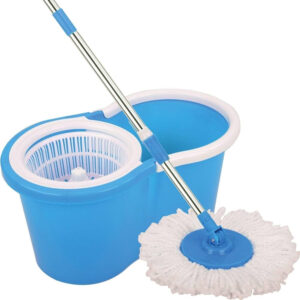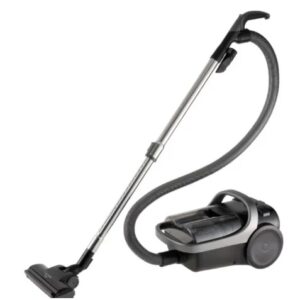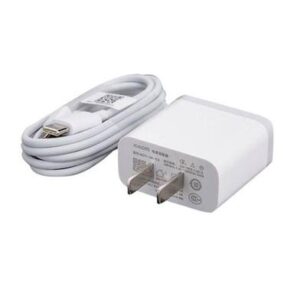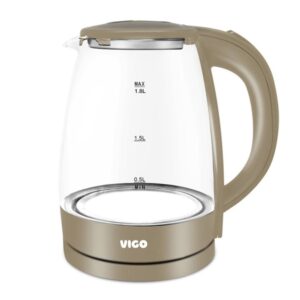How to Choose the Best Mosquito Killer for Your Home
The world is filled with delightful summer nights, but they often come with uninvited guests: mosquitoes. These tiny creatures not only disrupt outdoor activities but also pose serious health risks.
The Global Impact of Mosquitoes
Mosquitoes are found almost everywhere. They thrive in warm, wet climates, which makes them a global concern. We have about 3,500 mosquito species, but only a few are known to spread diseases. According to the World Health Organization (WHO), mosquitoes are responsible for over one million deaths each year.
The Dangers of Mosquito-Borne Diseases
Mosquitoes are infamous for spreading diseases like Malaria, Dengue Fever, Zika virus, and West Nile virus. These illnesses can be severe and sometimes fatal. In regions where these diseases are common, they can significantly impact public health systems and economies.
The Need for Effective Mosquito Control
With the dangers mosquitoes present, effective control methods are essential. Finding ways to manage these pests can protect our health and enhance our outdoor experience.
Choosing the Right Mosquito Killer: Factors to Consider
- Selecting the best mosquito killer involves weighing several factors.
- Your Budget and Available Resources
- Cost Comparison of Different Mosquito Killer Types
- Chemical solutions: Generally affordable, but costs can rise with frequent use.
- Physical devices: Higher upfront costs, but often last longer.
- Biological options: Usually inexpensive, especially if promoting natural predators.
- Assessing Your Personal Resources and Time Commitment
- Evaluate how much time you can dedicate to mosquito control to find a solution that fits your lifestyle.
- Environmental Considerations
- Minimizing Environmental Impact
Choose methods with minimal side effects on non-target species. This can foster healthy ecosystems while addressing mosquito issues.
- Choosing Eco-Friendly Mosquito Control Options
Select products labeled as biodegradable or those utilizing natural ingredients to reduce environmental harm.
- Safety and Health Concerns
Understanding Potential Risks of Chemical Mosquito Killers
- Chemical sprays can pose health risks, particularly for young children and pets. Always ensure proper application and ventilation when using these products.
- Prioritizing Safety for Children and Pets
- Consider physical or biological options if you have young children or pets at home. These methods tend to be safer overall.
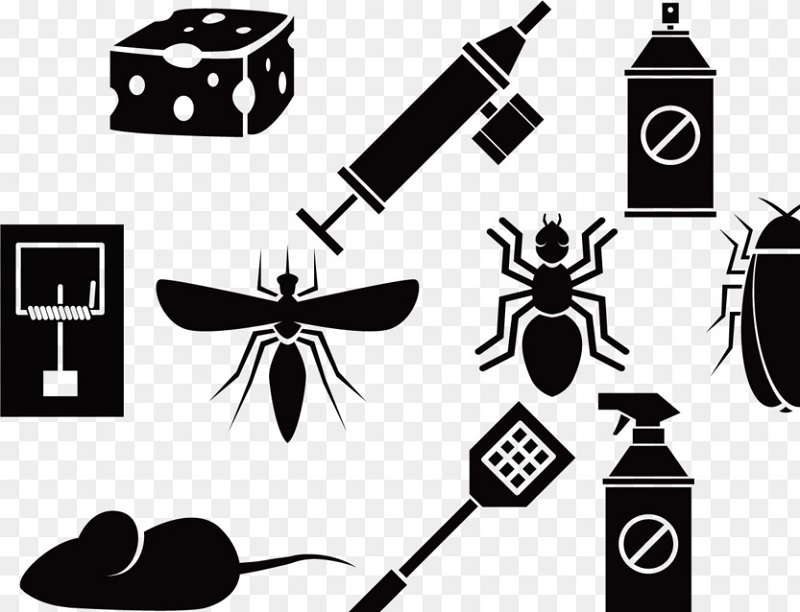
There are several effective ways to deal with mosquitoes, ranging from chemical solutions to natural remedies. Here’s a breakdown:
Electronic Mosquito Killers
Bug Zappers: Devices that use UV light to attract and kill mosquitoes.
Pros: Effective indoors and outdoors.
Cons: Not always specific to mosquitoes, may harm other insects.
Mosquito Traps: Devices that emit CO2 or heat to mimic human presence, luring and trapping mosquitoes.
Examples: Propane traps, suction traps.
Pros: Effective for large areas.
Cons: Require maintenance.
Ultrasonic Repellents: Emit high-frequency sounds that claim to repel mosquitoes.
Effectiveness: Mixed results; some studies suggest limited success.
Chemical Solutions
Insect Sprays: Use chemicals like pyrethroids.
Examples: RAID, HIT mosquito spray.
Pros: Quick and effective.
Cons: Toxic, should be used with caution indoors.
Mosquito Coils and Mats: Emit smoke or vapor to repel mosquitoes.
Pros: Cost-effective.
Cons: Can be harmful if inhaled for prolonged periods.
Liquid Vaporizers: Plug-in devices that release mosquito-repelling chemicals.
Examples: AllOut, GoodKnight.
Pros: Convenient for indoor use.
Cons: Requires electricity.
Natural Remedies
Plants: Mosquito-repelling plants like citronella, lavender, marigold, or lemongrass.
Pros: Chemical-free.
Cons: Limited effectiveness in high mosquito areas.
Essential Oils: Use citronella, eucalyptus, or tea tree oil as sprays or in diffusers.
Pros: Eco-friendly.
Cons: Requires frequent application.
Mosquito Nets: Effective physical barrier while sleeping.
Pros: Non-toxic, long-lasting.
Cons: Limited to specific areas (e.g., beds).
Preventive Measures
- Eliminate Standing Water: Mosquitoes breed in stagnant water. Empty or cover containers, clean gutters, and use larvicides in ponds.
- Window Screens: Install fine mesh screens to prevent mosquito entry.
- Wear Protective Clothing: Long-sleeve shirts and pants.
- Would you like recommendations for specific devices or brands?
- Types of Mosquito Killers
Here are the main types of mosquito killers, categorized by how they work and where they are used:
1.Electric Mosquito Killers
Devices that use electricity to attract and kill mosquitoes.
Bug Zappers:
Use UV light to lure mosquitoes, which are then electrocuted by a grid.
Best for: Indoor or outdoor use.
Examples: Flowtron, Aspectek Bug Zapper.
Electric Traps:
Emit heat, carbon dioxide, or moisture to mimic human presence, trapping mosquitoes with a fan.
Best for: Large outdoor spaces.
Examples: Dynatrap, Mosquito Magnet.
Five Best Electric Mosquito Killers Our Top Picks
2.Chemical Mosquito Killers
These use insecticides to kill mosquitoes on contact.
Sprays:
Aerosol sprays (e.g., RAID) kill mosquitoes instantly.
Best for: Spot treatment indoors.
Vaporizers:
Electric devices release chemical fumes to kill mosquitoes.
Best for: Indoor use overnight.
Examples: Good Knight, All Out.
Mosquito Coils:
Burn slowly, releasing insecticidal smoke.
Best for: Outdoor use.
Larvicides:
Chemicals added to water sources to kill mosquito larvae.
Best for: Preventing mosquito breeding in stagnant water.
Five Best Chemical Mosquito Killers Our Top Picks
3.Natural Mosquito Killers
These rely on non-toxic methods to repel or kill mosquitoes.
Essential Oils:
Oils like citronella, neem, or eucalyptus repel mosquitoes.
Best for: Personal use or small areas.
DIY Traps:
Traps made with sugar, yeast, or soap to lure and drown mosquitoes.
Best for: Small indoor or outdoor areas.
4.Ultrasonic Devices
Emit high-frequency sound waves that claim to repel mosquitoes.
Effectiveness: Mixed results; may work better as a preventive measure.
Best for: Indoor use.
5.Smoke-Based Mosquito Killers
Herbal Incense Sticks:
Natural alternatives to coils, using citronella or lavender.
Best for: Outdoor areas like patios.
Burning Materials:
Burning sage, rosemary, or coconut husks repels mosquitoes.
Best for: Outdoor use.
6.Physical Barriers
While not directly “killing” mosquitoes, these are very effective in reducing mosquito bites.
Mosquito Nets:
Best for: Sleeping areas.
Window Screens:
Best for: Preventing mosquito entry indoors.
7.Biological Mosquito Killers
Predatory Fish:
Fish like guppies and goldfish eat mosquito larvae.
Best for: Ponds or water features.
Bacteria-Based Larvicides:
Use bacteria (like Bacillus thuringiensis) that target mosquito larvae without harming other species.
Best for: Large water bodies.
8.UV LED Traps
Modern traps use UV LED lights combined with fans to suck mosquitoes into a container.
Best for: Eco-friendly indoor or outdoor use.
9.CO2-Based Traps
Simulate human breath by emitting CO2 to lure mosquitoes into traps.
Best for: Outdoor areas with heavy mosquito infestations.
10.Combination Mosquito Killers
Some devices combine multiple methods, like UV light with a fan or heat with chemical attractants, to improve effectiveness.
Would you like recommendations or comparisons of these types? Here are natural remedies to kill or repel mosquitoes effectively:
1.Mosquito-Repelling Plants
- Certain plants produce natural chemicals that repel mosquitoes:
- Citronella Grass: Produces citronella oil, a well-known mosquito repellent.
- Lavender: The scent repels mosquitoes and is soothing for humans.
- Marigold: Contains pyrethrum, a natural insecticide.
- Lemongrass: Effective due to its citronella content.
- Basil: Acts as a natural repellent and is easy to grow.
How to Use:
Plant them around your home, windows, and gardens.
Crush the leaves to release the scent and rub it on your skin (for non-irritant plants
2.Essential Oils
- Essential oils can repel and even kill mosquitoes when used properly.
- Citronella Oil: A widely used natural mosquito killer.
- Eucalyptus Oil: Works as an effective insecticide.
- Tea Tree Oil: Has both repellent and insecticidal properties.
- Neem Oil: A natural pesticide with a strong smell mosquitoes avoid.
How to Use:
Mix 10–15 drops of the oil with water in a spray bottle and spray around your home.
Dilute with a carrier oil (like coconut oil) and apply to your skin as a repellent.
3.Homemade Mosquito Traps
- Create simple traps to attract and kill mosquitoes.
- Sugar and Yeast Trap:
- Cut a plastic bottle in half.
- Mix warm water, sugar, and yeast in the bottom half.
- Invert the top half to form a funnel and tape it together.
- Mosquitoes are attracted to the CO2 and get trapped.
4.Garlic Spray
- Garlic has natural sulfur compounds that repel mosquitoes.
- Boil a few cloves of crushed garlic in water.
- Let it cool, then pour into a spray bottle.
- Spray the mixture around doors, windows, and outdoor seating areas.
5.Coffee Grounds
- Sprinkling coffee grounds in standing water prevents mosquito larvae from developing.
- Spread used coffee grounds in puddles, gutters, or any stagnant water near your home.
- This suffocates the larvae and prevents breeding.
6.Burning Natural Materials
- The smoke from burning certain materials repels mosquitoes:
- Dried Sage or Rosemary: Burn these herbs in a firepit or bowl outdoors.
- Coconut Shells: Produces mosquito-repelling smoke when burned
7.DIY Citrus Spray
- Mosquitoes dislike the smell of citrus.
- Mix lemon juice with water or boil citrus peels and spray the mixture in mosquito-prone areas.
8.Soap and Water Trap
- Place a dish filled with soapy water (preferably scented) near mosquito-prone areas.
- Mosquitoes land on the surface and sink because of the soap.
9.Camphor
- Camphor emits a strong smell that drives mosquitoes away.
- Light camphor in a room and leave it closed for 15–20 minutes.
- Use camphor tablets in water bowls as a long-lasting repellent.
10.Keep the Environment Clean
- Remove Standing Water: Mosquitoes breed in stagnant water. Empty plant saucers, pet bowls, and buckets.
- Natural Fish Predators: Introduce fish like guppies or goldfish in ponds to eat mosquito larvae.
Combining Methods for Best Results
Using a mix of these remedies (e.g., citronella oil, garlic spray, and coffee grounds) can significantly reduce mosquito populations while keeping your space chemical-free.
Would you like a DIY guide for any specific remedy?
Conclusion: A Multi-Faceted Approach to Mosquito Control
Addressing the mosquito problem requires a mix of strategies. Understanding the different types of killers and their effectiveness is crucial. Effective prevention methods can significantly reduce mosquito populations and our exposure to them.
For more details on mosquito control, consider exploring local resources and public health information.





